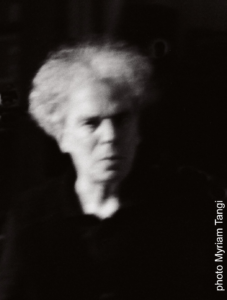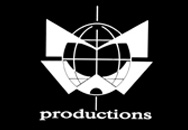Présentation
Après l’attentat revendiqué par le « Jihad islamique » contre le Festival International du Cinéma Juif à Paris en 1985, manifestation que j’organisais chaque année depuis 1981, le désir de tourner la page c’est imposé à moi. Cette décision fut en partie due à un environnement politique détestable qui me dépassait par ses enjeux, mais également je souhaitais aborder de nouvelles perspectives.
Il m’a semblé approprié de me retirer de l’action publique pour me tourner vers un travail plus personnel, de limiter mon degré d’exposition et d’adopter un rythme plus lent me permettant de faire face à un nouveau défi dont je pressentais qu’il serait long à réaliser, très long, probablement jamais tout à fait achevé.
Emil Weiss - Auteur & Réalisateur

After the attack claimed by the « Islamic Jihad » against the International Festival of Jewish Cinema in Paris in 1985, an event that I had organized every year since 1981, the desire to turn the page was imposed on me. This decision was in part due to a detestable political environment which overwhelmed me with its challenges, but also I wanted to tackle new perspectives.
It seemed appropriate to me to withdraw from public action to turn to a more personal work, to limit my degree of exposure and to adopt a slower pace allowing me to face a new challenge that I sensed that it would take a long time to realize, very long, probably never quite finished.
Le désir était d’ouvrir un nouveau jardin, avec un cahier des charges apparenté à celui du paysan sans temps de replis, à ceci près qu’il s’agissait de faire pousser des objets de culture, des idées, des scénarii, des images et des sons pour raconter des histoires, des histoires qui non pas encore été racontées, telle que ma vision les percevait.
Après l’expérience d’agriculteur dans un kibboutz du Néguev, puis devenu constructeur d’une école près de Paris, j’ai passé un diplôme d’architecte à l’École Spéciale d’Architecture. J’ai alors 40 ans lorsque je réalise mon premier film, Falkenau vision de l’impossible, en autodidacte, avec le concours bienveillant de Samuel Fuller. Une passion pour la photo m’avait amené, encore très jeune, à faire émerger tard dans la nuit des images magiques dans mon laboratoire. Ce fut une pratique qui m’a permis de faire corps avec la caméra, j’appris à montrer ce que je souhaitais montrer, j’appris à choisir le cadre et la lumière en conséquence. J’appris que l’objectif, et à travers lui la technique, ne prend de consistance qu’à partir du moment où il donne vie à l’objet placé dans son champ de vision, objet appelé à devenir sujet.
Mais le cinématographe saisi le réel 24 fois par seconde plus le son et rend perceptible le hors champ, attributs d’une importance capitale si on souhaite favoriser une perception ouverte de la représentation à partir d’un réel dont les métamorphoses dépassent toutes les fictions. C’est ce qu’offre tout particulièrement le cinéma documentaire, poétique et pédagogique à la fois.
Auteur, réalisateur et producteur de la plupart de mes travaux il m’importe de servir au mieux à la fois les idées développées et les personnes présentées, les protagonistes associés à mes films. Dans notre environnement assommé par un flux permanent d’informations, j’ai essayé d’apporter du sens, convaincu que notre compréhension est perfectible, et à défaut de pouvoir changer le monde, il le rend davantage intelligible. C’est en soi déjà un « miracle » considérable.
La filmographie présentée est représentative de la palette de mes intérêts. J’espère toutefois qu’au-delà de toutes les considérations critiques que soulève inévitablement tout documentaire, le spectateur découvrira, en écho, un aspect personnel, qu’il sera le seul à pouvoir qualifier.
The desire was to open a new garden, with specifications related to that of the peasant without time to rest, except that it was a question of growing cultural objects, ideas, scenarios, images. and sounds to tell stories, stories that have yet to be told, as my vision perceived them.
After working as a farmer in a kibbutz in the Negev, then becoming a builder of a school near Paris, I graduated as an architect from the Special School of Architecture. I was 40 years old when I directed my first film, Falkenau vision of the impossible, as an autodidact, with the benevolent assistance of Samuel Fuller. A passion for photography had led me, still very young, to bring out magical images late at night in my laboratory. It was a practice that allowed me to become one with the camera, I learned to show what I wanted to show, I learned to choose the frame and the light accordingly. I learned that the objective, and through it the technique, only takes on consistency when it gives life to the object placed in its field of vision, an object called to become a subject.But the cinematograph captures reality 24 times a second plus sound and makes the out-of-frame perceptible, attributes of capital importance if one wishes to promote an open perception of representation from a reality whose metamorphoses go beyond all fictions. This is what documentary cinema offers, both poetic and educational at the same time.
Author, director and producer of most of my work, it is important for me to best serve both the ideas developed and the people presented, the protagonists associated with my films. In our environment stunned by a constant flow of information, I tried to make sense, convinced that our understanding could be improved, and if we cannot change the world, it makes it more intelligible. This in itself is already a considerable « miracle ».
The filmography presented is representative of the range of my interests. However, I hope that beyond all the critical considerations that inevitably arise in any documentary, the viewer will discover, in echo, a personal aspect, which he will be the only one who can evaluate.
Filmographie
| Titre Français | English Title | |||
| 2012-21 | Direction | auschwitz-complex.com – plateforme web 45 modules | auschwitz-complex.com – web platform 45 modules | 261′ |
| 2017 | Direction | Auschwitz Projekt, premier volet | Auschwitz Projekt, part 1 | 56′ |
| 2010 | Direction | Auschwitz, premiers témoignages | Auschwitz, the First Testimonies | 78′ |
| 2008-13 | Direction | Criminal Doctors Auschwitz | Criminal Doctors Auschwitz | 54′ |
| 2008 | Direction | DVD – Samuel Fuller | DVD – Samuel Fuller | |
| 2005-07 | Direction | Sonderkommando – Auschwitz Birkenau | Sonderkommando – Auschwitz Birkenau | 52′ |
| 2004 | Direction | Falkenau, Samuel Fuller Témoigne | Falkenau, Samuel Fuller Bears Witness | 61′ |
| 2000-02 | Direction | Mémoire d’Ernest, oratorio pour une voix et une machine à coudre | 55′ | |
| 1997-06 | Direction | Tikkoun, Réparation | Tikkoun. Reparation | 101′ |
| 1997-06 | Direction | Kapparot, Expiation | Kapparot, Expiation | 82′ |
| 1997-02 | Direction | Secret de Silex | The Secret of Flint | 85′ |
| 1996-13 | Direction | Entre science et sagesse, avec Henri Atlan | Between science and wisdom, with Henri Atlan | 2×59′ |
| 1996-02 | Direction | La Mosaïque d’Alex Derczansky | 69′ | |
| 1995-96 | Production | Le combat de Serge Klarsfeld | The combat of Serge Klarsfeld | 60′ |
| 1994-96 | Direction | Quartier Lacan | Quartier Lacan | 2×58′ |
| 1994-96 | Direction | Léon Poliakov – Historien du racisme et de l’antisémitisme | Léon Poliakov – Historian of racism and antisemitism » | 52′ |
| 1994-95 | Production | Mon pays m’a quitté | My Country Left Me | 50′ |
| 1992-93 | Production | L’Espoir pour mémoire. Les Brigades internationales en Espagne | Chronicles of Hope. The International Brigades of Spain | 3×52′ |
| 1991-02 | Direction | Destins, valeurs, transmissions – Rachel et Jacob Gordin | 81′ | |
| 1989-92 | Direction | Israël opus 40, description d’une génération | Israël Opus 40 Description of a Generation | 93′ |
| 1989-91 | Direction | Yeshayahou Leibowitz : Nul n’est prophète en son pays | Yeshayahou Leibowitz : No Man is a Prophet in His Own Country | 2×54′ |
| 1988-89 | Direction | Tell me Sam | Tell me Sam | 75′ |
| 1987-88 | Direction | Falkenau, vision de l’impossible, S. Fuller témoigne | Falkenau, The Impossible, Samuel Fuller bears witness | 52′ |
| 1986 | Production | Samuel Fuller ou un travelling est affaire de morale | Samuel Fuller, A travelling is an affair of morality | 50′ |
| 1985 | Scenario | Scénario-Franz Kafka, description d’un combat | Scenario -Franz Kafka, description of a combat | 60′ |
